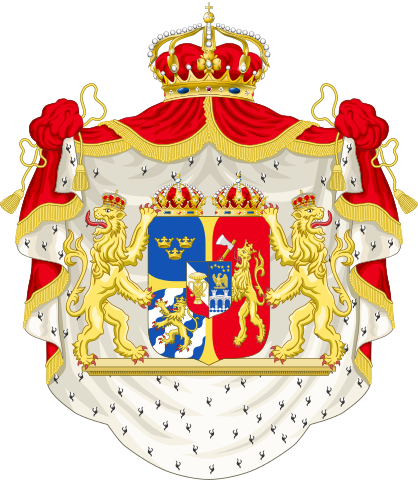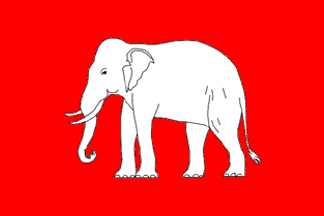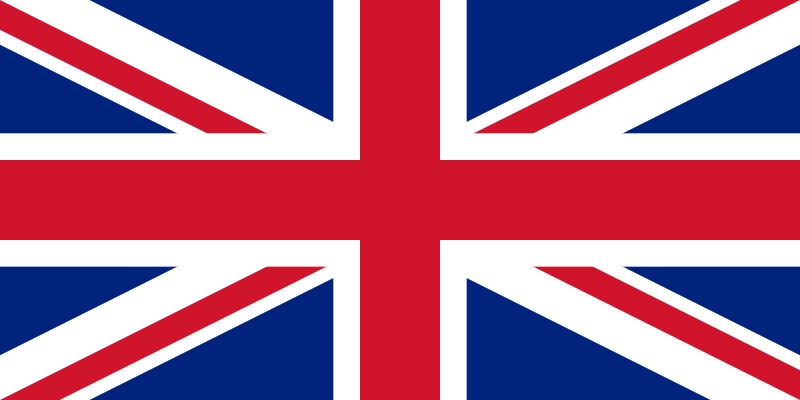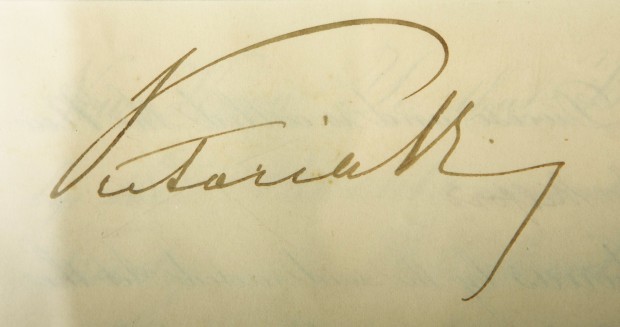Events of the World: 1861EuropeIn 1861, the general populace of the United Kingdom was very anti-slavery, and unlikely to support positive United Kingdom-CSA relations. Hoping to rectify this, the British Parliament implemented a propaganda campaign hoping to demonise the USA in the eyes of the general public. Despite higher costs than expected, the campaign was mostly successful.
(-£81, +5% public support to the United Kingdom)
The British Parliament, hoping to support their new ally the CSA, ordered a huge portion of the Royal Navy to blockade the Union. Unwilling to oppose the UK and thus worsen the war, the navy of the USA made no opposition as the British warships blockaded the ports of the Union. Some British officers shared this unwillingness, and some braver blockade runners managed to slip through, especially on the west coast, heading for friendly Russia. At the same time, British transport ships delivered 25 000 troops into Canada, ready to take more drastic action against the Union. The move was met with dismay in Canada, as the general populace had still fresh memories of the last war and had no wish to antagonize their southern neighbour, many of them sharing the Unions views.
(USA partially blockaded)

British warship moving out of harbourBritish merchants began trading heavily in Chinese ports. However, the new market proved unruly as some merchants failed to understand the value of their products, often selling at a much lower price or buying too high.
(-£533)
Expecting war on the horizon, the British Parliament ordered the British army to undertake a recruitment campaign, as well as making factories produce better equipment. However, almost no men signed up, and although the Parliament pumped money into the factories, it came to no avail.
(-£672, +1800 regulars)
In order to aid the poor in France who suffered the most from medical problems, and were least suited to alleviate them, the French Government passed a bill implementing a National Healthcare System. The NHS, although expensive, was successful and had immediate results.
(-£1,010, +0.65% population growth)
The French Government also wished for inventors and entrepreneurs in France to succeed, and so provided grants and support. However, although many claimed the grants, few had any useful results.
(-£78)
Hoping to aid the CSA and the British, the French military attempted to send an army of 25 000 troops to Canada to join the British troops also sent. However, the public reacted violently against such a move. Huge protests were held, and eventually the French military caved under the pressure and postponed the deployment.
(-15% public opinion, troops not deployed)
The Government had better luck when it attempted to improve the education of the populace. Working in conjunction with the UK, the move had small costs and large benefits.
(-£110, +10% education rate in 2 turns)
Newly appointed War Minister Albrecht von Roon quickly began to reform the structure of the Prussian military. By making conscription applicable to all males aged 18 – 45 and changing the number of years spent in the reserves, the size of the army increased immensely. However, it did not increase to the size desired as many attempted to avoid the draft, and there was some backlash from the general public.
(+30 000 regulars, -4% public support)

Albrecht von RoonTravelling by civilian transport, some Prussian officers managed to sneak into North America and Colombia as observers of the civil wars. However, they did not gain much from the Colombian war, and the inconclusive fighting at Bull Run did not offer much insight either. Worse, the blockade meant that many were stuck inside the USA, forced to wait it out with the American populace or try and sneak through the blockade.
(+1 army sublevel in 4 turns)
The Prussian Government spent thousands improving their infrastructure, concentrating heavily on railroads. However, the costs were high and the yields were low, as piles of unused materials lay alongside planned railroad routes, only to be pilfered by the local populace.
(-£532, +1 infrastructure sublevel in 3 turns)
By increasing tariffs on the steel industry, the Prussian Government aimed at promoting economic growth. However, it was only partially successful.
(-£533, +1 industry sublevel)
Austria set out in 1861 to improve the efficiency and skill of its troops – a wise move, considering the turmoil now engulfing the world. To facilitate this, the Military Academy of Prague was founded in 1861, using an old building that was renovated. The greatest military minds around Austria, and abroad, were called in to help staff this. The costs quickly ballooned out of control, but the desire for a newer, and better, army drove the government to continue to spend. The results were seen, but the costs left many wondering if it was worth it.
(-£604, +1 army sublevel in 2 turns)
The Austrian Army requested in mid-1861 for an upgrade of their equipment and their artillery. In order to do so, the government passed several acts, hoping to bring up money and funds for the expansion. Some unforeseen expenses came up, requiring much more than previously thought to be purchased, causing a massive amount of money to be spent.
(-£457, +5% equipment)
An army can be the best equipped and best trained army in the world, but if it can’t reach the battlefield it is useless. Therefore, the Austrian Government undertook a project to construct a railway from Vienna to Prague. Work began in due course, but there were unforeseen expenses and progress was slow.
(-£541, +1 infrastructure sublevel in 3 turns)
Under supervision from the Austrian Government, factories began to be built all over Austria Proper. With good guidance and a few lucky breaks, soon industrial output had increased massively.
(-£443, +1 industry sublevel)
In the Russian Empire, Tsar Alexander II of Russia announced that during the year of 1861, all of the Serfs in the Russian Empire were to be liberated. 23 million people were to receive their liberty, and to have the full rights of all citizens. This sudden shock of a move stunned many in the Empire. Thousands of landed Nobles, who saw that this reform actually took land away from them to give to the Serfs, instantly struck a tone against this. They refused to give up the land, and thousands of Serfs began to wander. This caused a huge portion of the agrarian Russian to begin collapsing. Massive starvation as well plagued the Empire, causing a massive importation of food to try and keep the country alive. It was unknown for how long this massive upheaval would last.
(-£11,835, -1 industry sublevel, +35 prestige)

A town hearing the emancipation being read to themHoping to spread their influence in the region, the Russian Government began a propaganda campaign in the northern regions of Afghanistan. The effect was almost non-existent, as the mostly Islamic population did not fancy being under the yoke of the Christian Russia, and the Afghan government did not take Russian intrusions kindly.
(No effect)
Attempts to improve the education of the Russian people went far better, as newly emancipated serfs took advantage of state-sponsored classes to improve their lives.
(-£95, +8% education rate)
The Romanian Government also tried to improve the general education of their populace; their method was to construct more schools and universities. However, to try and cut down costs, budgets were cut on staff wages, meaning that the teachers that applied for jobs were not of the highest calibre.
(-£154, +5% education rate)
Seeing the rest of Europe militarize, the Romanian Government thought it wise to raise more troops. A propaganda campaign was drawn up, with posters and leaflets planned to be scattered all over Romania. Unfortunately, a secretary misheard some crucial orders, and the leaflets were sent to Australia instead. Due to the long distance and a poor grasp of the Romanian language, very few Australians signed up for the Romanian army.
(-£89)
In order to try and determine the mood of the general population, ballots were held to discover what they wished to be improved in the country. However, pranksters and troublemakers took the opportunity to post ludicrous answers, and many nationalists in both Principalities voted to split from the other one, so the ballot quickly degenerated into a farce.
(-£273)
Hoping to improve the skill of the average soldier in the Principalities, a more rigorous and structured training program was devised. It was a roaring success, as the quality and general health of the troops improved immensely.
(-£740, +1 army sublevel, +1 army sublevel in 2 turns)
The Italian military, in order to improve the skill and experience of their military leaders, sent a number of officers to observe Prussian training and tactics, as well as being taught by Prussian strategists. Unfortunately, poor direction skills and a misleading map caused them to take a train to Sicily instead.
(No effect)
Hoping to spur economic growth in a single focussed direction, the Italian Government decided to try and integrate the once separate Italian economies. It was a success when it came to smaller areas, however a divide between the industrial north and agricultural south became apparent, and integration was slow.
(-£542, +1 industry sublevel in 1 turn)
Hospitals were constructed in populated areas all over Italy, to try and provide healthcare to those in need. Progress was slow, however, and became tangled in many bureaucratic webs.
(-£487, +0.2 population growth)
The Italian Navy, in order to prove themselves masters of the Mediterranean, conducted naval drills in the Tyrrhenian Sea. They were immensely successful, and the sailors received beneficial experience.
(-£112, +1 navy sublevel)
In the Ottoman Empire, the decision is made to establish the Meclis-i Umumi (General Assembly), made up of the Senate and the Chamber of Deputies, transforming the Ottoman Empire into a constitutional monarchy. Each vilaya is to get 6 elected representatives in the lower house, the Chamber of Deputies, filling the 186 seats available in the lower house. The upper house, the Senate, is to be made up of 30 Senators appointed by the Sultan and 70 Senators voted for by the Chamber of Deputies, filling up the total 100 seats available in the Senate. Political parties are allowed to be established in order to campaign for seats in the lower house, while the position of Prime Minister is to be filled by the Grand Vizier, appointed by the Sultan.
(+12 prestige)
The long-failing bureaucracy was also tackled, with positive results. The implementation of the vilayet system, centralising of the empire, and a rooting out of corruption lead to decreased government spending.
(+£500)
Hoping to link the entire empire by rail, projects are planned and funded to increase the number of miles of railroad track. The main Pristina-Istanbul-Damascus-Jerusalem-Mecca line is built quickly and efficiently, and other lines follow.
(-£1,107, +2 infrastructure sublevels in 2 turns)
Hoping to encourage industrial growth, the Greek Government offered incentives for factories that increase their output. It is, however, only partially successful.
(-£722, +1 industry sublevel in 1 turn)
Training drills were held outside of Athens to show the skill and prowess of the Greek Army. Large crowds came out to watch, and fortunately there were no glaring errors made.
(-£102, +1 army sublevel)
The Greek Government attempted to build schools in poorer villages. Unfortunately, most of the materials were lost en-route, so none were able to be constructed.
(-£101)
To try and build support for his rule, King Otto took a tour of his country. The tour was a success; however a minor bout of sickness forced him to cut the tour short, leaving much of the Peloponnese unvisited.
(+4% public support)
The AmericasThe Battle of Bull Run showed that this would be neither a short nor an easy war, particularly as European powers look to be getting involved. Large armies and huge numbers of troops will be needed. However, as war fever spreads across the Union, volunteers are not difficult to find and lines for recruitment offices stretch around the block.
(+120 000 conscripts)

A typical recruitment posterAlthough the nation had been blockaded by the Royal Navy earlier in the year, the US Navy was still a force to be reckoned with. US naval commanders began preparing to either fight and break their way through the blockade, or to try and run the gauntlet and slip through. Either way, the smallest change could mean the difference between life and death, and the US Navy trains and studies zealously.
(-£310, +1 naval sublevel, +1 naval sublevel in 1 turn)
Blaming inexperience for the failure to achieve victory at Bull Run earlier, US army commanders spent the winter training and outfitting the army, focussing particularly on the Army of the Potomac. Understanding the value of meticulous planning and preparation, the Maj. Gen George McClellan took personal interest in training the army during the quiet winter months.
(-£456, +1 army sublevel, +6% equipment)
While there had been precious little to celebrate during the year, President Lincoln still believed that they were in the right, and he endeavoured to make the general public take his view. With impassioned speeches and tours, he was successful in swaying much of the public’s opinion.
(+10% public support)
The Confederacy mirrored the Union in its realisation of the scale of the war. Recruitment increased hugely and thousands of new soldiers joined the ranks, although they fell short of the goal of 150 000 Davis was hoping to reach. Placing their training under the capable hands of Gen. Thomas Jackson, the green recruits were quickly taught how to march and how to fight.
(+75 000 conscripts)
It is one thing to raise an army, and to train it, but it another issue entirely to get it to the front. The Union had over twice the amount of railroad track that the CSA had, and they sought to rectify this. An ambitious plan was drawn for the construction of a railroad system linking all major cities of the CSA. It was a slow start, but eventually work got under way.
(-£1,001, +1 infrastructure sublevel in 1 turn, +1 infrastructure sublevel in 2 turns)
Montgomery, while it would forever famous for being the founding place of the Confederacy, had a population of only 9000, and was too small for the demanding task of running the fledgling nation. A number of other choices were put forward; such as Nashville or Atlanta. Richmond in Virginia was seriously considered for a time, but it was located too close to Washington for comfort. Finally the port of Charleston was chosen. It was certainly large and wealthy enough, however there were some fears that, as the city was already being blockaded, it may be too vulnerable to the Federal Navy.
In order to increase the literacy rate of the population, the CSA undertook projects to build public libraries in all major cities. However, a lack of funding, and some confusion as to why a wartime government was wasting time on such an issue, meant that almost no progress was made.
(-£95)
Hoping to capitalise on the distractions the USA was facing, Mexico attempted to build up its industrial base so to become a competitor in North America. However, slow progress was made, although there was some gain.
(-£841, +1 industry sublevel in 1 turn)
A plan to build a railway connecting northern and southern Mexico fell flat as corruption and theft robbed the operation of its funding and materials.
(-£328)
Attempts to prevent desertion in the army by increasing pay were unsuccessful, as few soldiers thought it was worth it, and the plan was soon scrapped. Hopes of enticing military advisors from Europe to reform the military also failed, as they were engrossed in their own affairs. However, there was some good news, as a Prussian officer who had come south trying to get back through the blockade agreed to offer his expertise in return for a boat ride home.
(-£250, +1 army sublevel in 2 turns)
The Lei Áurea, the Golden Law that abolished slavery in Brazil, was signed and ratified. While this was a grand step in the right direction, the law failed to provide support and assistance for the freed slaves, who were left to make their own way in the world and often struggled to gain economic, political, or social status.
(+22 prestige, -1 industry sublevel)
In a gesture of generosity, the Emperor authorised the use of Brazils transport ships to try and rescue refugees from the US Civil War. However, the blockades made it difficult to reach the shore, and those that did found that the single limited battle that had occurred so far had not generated many refugees.
(+5 prestige)
Factories sprang up in Brazil as a result of a government push for a stronger economy. Many of these factories provided work to those newly liberated slaves, although perhaps not the best quality work.
(-£501, +1 industry sublevel)
Although originally for the refugees that never came, the government-built housing found good use as housing for newly freed slaves.
(-£120, +0.2 population growth)
Now that they had the advantage, the Granadine Confederation was desperate to push hard against the rebels, so the Government issued an order to recruit soldiers from Santander to restore the numbers lost. Some took the offer, but not nearly the amount expected.
(+8000 conscripts)
To allow quicker access for troops, the Government attempted to improve the poor roads in the mountainous region. Unfortunately, the use of explosives to speed up the work triggered landslides, and all progress was lost. Fortunately no one was killed.
(-£102)
In order to foster support for the military and the Government, taxes were lowered in areas that provided their services to the military. However, many people saw this as bribery, and others complained that their areas did not receive this preferential treatment. Most, however, where simply too focussed on their day-to-day survival to offer any help to the army.
(No effect)
AsiaIn his new role as Prince-Regent, Prince Gong of China began with a purge of disloyal and overly conservative figures from the government, and replaced them with reformists and loyalists. The effect was huge – that, and the idea of the Self-Strengthening Movement, caused a massive uprising of support for the new Emperor against the Taiping. Enterprising Officers took the advantage to seize massive swaths of Taiping land, including the cities of Hangzhou and Suzhou, and the revolt in Nanjing effectively ousted the Taiping. As a new era began, the Taiping Rebellion was effectively at an end.
(+20% public support, +10 prestige, Taiping Rebellion effectively over)
Attempts to overhaul the educational system in the Great Qing fell flat, as the planned Ministry of Education never received the funding it needed, and stubborn-minded elders protested against the changing of how schools were run.
(-£110)
A merging of different duty systems in China into the Imperial Maritime Customs Service had the effect of streamlining and regulating the tax system. This reduced Government expenses quite heavily.
(Raised income)
The Japanese Army conducted drills modelling after European fashion to improve its failing army. The soldiers were slow and lethargic, but otherwise impressive and coordinated.
(-£321, +1 army sublevel)
Attempts at improving agriculture in Japan fail hopelessly, as the local population are unwilling and often downright refuse to change their farming ways from that of their fathers and grandfathers.
(-£85)
Coordinating with the army, the Japanese Navy also conducted training drills off the coast. While the army still needed a bit of work, the Navy, despite its poor condition, operated magnificently.
(-£435, +2 navy sublevels)
In Siam, a systematic restructuring of the government in order to remove any unnecessary or redundant aspects of the government takes place. This is a measure to cut down on the nations' expenditures, and it is a success.
(Raised income)
Attempts to unify the country were not very successful, as people were more focussed with trying to earn a living than worrying about politics, and the words were mostly ignored.
(No effect)
The Government invested heavier in factories in Bangkok, and these investments paid off, as new factories quickly become operational and efficient.
(-£452, +1 industry sublevel)
















